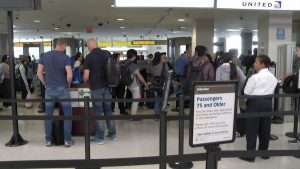There are several categories of traveling business professionals: the occasional business traveler, the frequent flyer, and the road warrior. Road warriors spend significant portions of the work week traveling between clients, and have a few tricks up their collective sleeves that save them and their employers money.
The occasional traveler might still be learning the ropes, and don’t yet know all the tricks of the trade. But Insperity.com had a list of their most important ones, which we agree every business traveler should know.

First, fiscally responsible road warriors don’t incur expenses that aren’t reimbursable. They research their company’s travel and entertainment policies — the amount of their daily per diem, for example — and stick to them. This means they aren’t surprised by rejected submissions that leave them stuck with the bill.
Fiscally responsible road warriors know their corporation’s budgets for flights, hotels, meals, and entertaining clients. They seek pre-approval if they need to spend more than is typically allotted, and then proceed to execute their plan with confidence.
Fiscally responsible road warriors live by this simple axiom: time is money. They know they can’t afford to waste time standing in long security lines, so they apply for TSA’s Pre Check. Even if they only travel a few times each year, the $85 security preauthorization is good for five years, and more than pays for itself during that time. (If you’ve ever stood for two hours in a single security line, you’d be ecstatic to escape it for $85 just once!)
Fiscally responsible road warriors avoid checking luggage at all costs. Not only are they avoiding the airline’s checked bag fees, they’re practicing good asset protection. They assess which piece of tech — a laptop, a smartphone, or a tablet — is truly most beneficial to the work they need to do on the trip. Taking only what is essential lightens their load, and increases their mobility.
Finally, fiscally responsible road warriors don’t rely on printed receipts for filing their expense reports. For example, Tidal Pool Software offers an app called, aptly, Receipts, which allows users to take photos of physical receipts with their phones, and then print them out in a convenient form when they return home.
How do you keep track of your finances and manage your costs when you travel? Do you have any helpful hints, or have a favorite one that you always live by? Tell us about it in the comments below, on our Facebook page, or in our Twitter stream.
Photo credit: NJTVNews (YouTube, Creative Commons)
